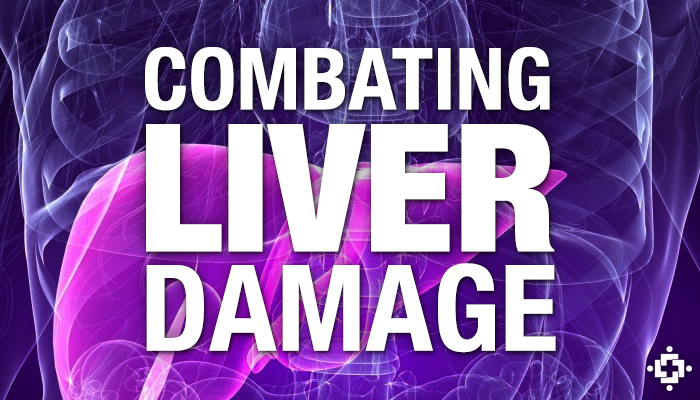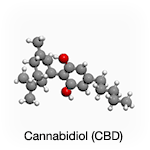
Study: Cannabidiol (CBD) May Help Prevent Alcohol-Induced Liver Damage
It is no secret that alcohol consumption can negatively affect one’s liver. This is because it can cause an excess of fats and lipids and additional oxidative stress (i.e. damage caused by free radicals).
With that said, a recent study published in Free Radical Biology and Medicine offers an interesting preventive measure. Funded by the National Institute on Alcohol Abuse and Alcoholism (NIAAA) and the National Institutes of Health (NIH), it suggests that cannabidiol (CBD) could help protect the liver from alcohol-induced damage.
Researchers Prevent Alcohol-Induced Liver Damage With CBD
 As we know, cannabidol (CBD) may have anti-oxidant effects. Couple that with the constituent’s lack of psychoactivity, and it makes sense why the team of researchers from China and Mount Sinai School of Medicine in New York chose to investigate its ability to counter alcohol-induced oxidative stress in the liver.
As we know, cannabidol (CBD) may have anti-oxidant effects. Couple that with the constituent’s lack of psychoactivity, and it makes sense why the team of researchers from China and Mount Sinai School of Medicine in New York chose to investigate its ability to counter alcohol-induced oxidative stress in the liver.
In doing so, they injected mice with ethanol twice a day for five days. This was intended to model the impact of binge drinking on one’s liver. Prior to this, a group of the mice were administered cannabidiol (CBD) as a preventive measure.
“The study’s results seem to confirm that cannabidiol (CBD) protects the liver from steatosis – the accumulation of fats and lipids.”
Sure enough, the study’s results showed that cannabidiol (CBD) may protect the liver from steatosis – the accumulation of fats and lipids. The researchers suggested that this was potentially the result of cannabidiol’s inhibition of oxidative stress and activation of pathways associated with fat accumulation.
The accumulation of fat in the liver can lead to much more serious problems like cirrhosis of the liver (i.e. scarring of the liver that may lead to liver failure) if it gets out of hand. With that said, there is no easy way to go about “curing” the disease once it occurs, so taking a preventive approach is best. Although increased research may strengthen the theory that cannabidiol (CBD) administration helps to prevent alcohol-induced liver damage, cannabidiol is not an approved or definitively effective preventive treatment at the present time. To reduce your risk of developing liver problems, the American Liver Foundation suggests that you eat a well-balanced diet, limit your alcohol intake, and practice safe sex.
For information on how you can advocate to move cannabis out of the Schedule I controlled substance classification in order to increase research on phytocannabinoids, expectations, and safety in considering whole-plant medical cannabis use, click here.